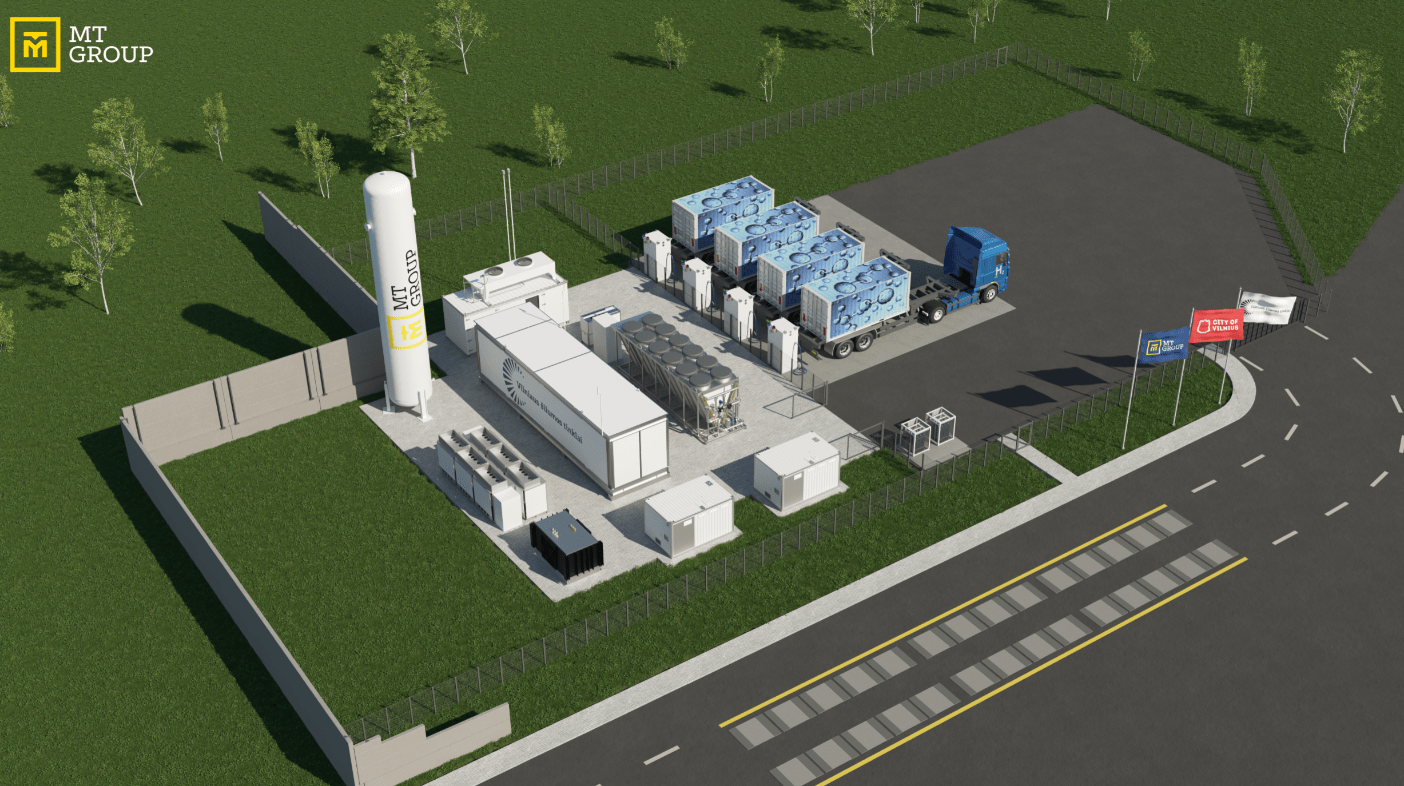Vilnius Leads the Baltic Region into a Green Hydrogen Future
Key Ideas
- Vilnius is set to construct a green hydrogen plant through a trilateral agreement, aiming to reduce CO₂ emissions by 1414 tons annually.
- The project costing around EUR 10 million is being funded mainly by the EU and Vilnius city municipality, with operations expected to commence in the first half of 2026.
- Green hydrogen production in Vilnius will contribute to a cleaner environment, advance the city's transport system, and align with the EU's climate-friendly economy goals.
- MT Group highlights the importance of Vilnius' plant in the context of Europe's move towards green hydrogen technology, emphasizing the city's potential to set a benchmark for the region.
Vilnius, the capital of Lithuania, is embarking on a significant initiative by commencing the construction of a green hydrogen plant. This project, supported by a trilateral agreement involving Vilnius city municipalities, Vilnius heat networks, and the European energy infrastructure development company MT Group, is pivotal in the city's sustainable energy plans. The plant's green hydrogen output will power 16 public transport buses, replacing diesel vehicles and reducing CO₂ emissions by 1414 tons annually. Mayor Valdas Benkunskas sees this project as a strategic response to the climate crisis and a step towards a cleaner environment and more advanced transport system. With a total cost of approximately EUR 10 million, the project is financed largely by the European Union, showcasing Vilnius' commitment to green energy. Operations are scheduled to begin in the first half of 2026, aiming to produce 3.45 million m³ of green hydrogen annually. Gerimantas Bakanas, the General Director of Vilnius District Heating Networks, underscores the importance of this project in decarbonizing difficult-to-transform sectors. MT Group, a key player in green hydrogen infrastructure development, views Vilnius' plant as a significant step towards achieving long-term environmental solutions. The company emphasizes the plant's role in setting high technological and safety standards and its potential to become a regional benchmark for implementing green hydrogen technology. Additionally, the project aligns with Lithuania's national climate change mitigation goals and contributes to the broader European shift towards clean energy. By joining other global cities in utilizing hydrogen technologies, Vilnius is poised to lead the Baltic region in sustainable energy practices, setting a positive example for other cities worldwide.
Topics
Public Transit
Renewable Energy
Environmental Impact
Sustainable Energy
EU Funding
Infrastructure Development
Carbon Capture
Climate Crisis
Transport Innovation
Latest News
